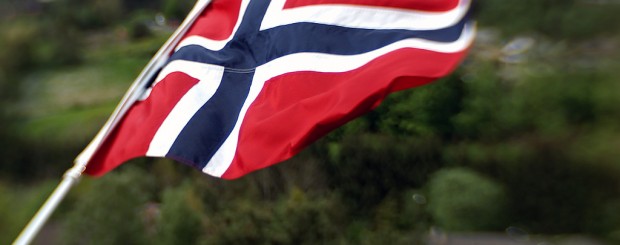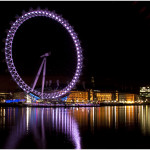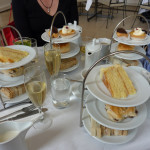7 Essential Tips for Norwegian Expats In London
Moving to London from Norway is an amazing opportunity, with the UK capital providing a wonderful place to live. There are many Norwegian nationals who’ve already made the move, meaning that any time you hanker for a little home company, it should be easy to find.
The following are 7 essential tips for Norwegian citizens planning (or already living) a life in London.
1. Use the power of the Internet
The Internet is a wonderful place to find out information about your new home. It also offers the wonderful potential of finding new friends from your homeland either once you’ve arrived, or even before you leave for your new life.
Websites such as Meet Up can put you in touch with people already here, and have regular monthly get togethers, as well as Scandinavian film nights. Meet Up also has a London Swedish Language Meetup group specifically for those who want to mingle with native speakers and learn or improve their language skills.
Internations is another website that provides a valuable connection network where you can converse with other Norwegian expats in London. There’s a lively forum, and they too organise regular events around the city.
2. Understand the ties between Norway and the UK
There’s an incredible, thousand-year history between the two countries, dating back to when ocean-going vessels began making trade routes across the North Sea. The countries are close trading partners and political allies, and share many of the same values – both within the EU and worldwide.
The Royal Norwegian Embassy in London should be your first port of call for discovering information about passports, visas and other embassy information. They also have a great Facebook page where you can keep up to date on all that is happening back home.
3. Discover employment opportunities
Not only are there some great job hunting websites that cover vacancies on a global scale, you’ll also be glad to hear that there are some that are specifically aimed at Norwegians looking for work in London.
Nordic Staff is one such site. Remember that you have a unique skill –that you’re a native Norwegian speaker. The website has been advertising employment opportunities since 2005, and mainly concentrates on three types of careers: Customer Support, Sales, and Finance.
Other sites that advertise jobs to all, but also include specific sections for Norwegian speaker, include the following:
- Top Language Jobs
- Indeed
- Multi Lingual Vacancies
- Trovit
- Job is Job
- European Language Jobs
4. Know where to get “real” food from home
Sometimes there’s nothing like traditional, home cooked food – and London is a fabulous place to find your favourites, such as Karelian pie, Salt Sild, and smushi.
Some good Norwegian restaurants in London include:
- Scandinavian Kitchen: Not only can you find great food here 7 days a week, but they also offer the opportunity to purchase all the familiar staples from home online. They use Nordic ingredients in all food served, and are open for breakfast from 08:00 weekdays (10:00 at weekends). Located in Great Titchfield Street in the City of Westminster, this really is THE place to visit when you need a little taste of home.
- Fika can be found in the trendy Brick Lane area of South London. Open from 12:15 weekdays and 10:00 at weekends, here you can enjoy typical Norwegian food at very reasonable prices.
- Nordic Bakery has three branches around London. There’s one in Soho, another in Marylebone, and another in Dorset Street, just off the Marylebone Road. It’s a typical Scandinavian style café, and as the name suggests, you can purchase traditional Nordic bakery products in a wonderfully calm atmosphere.
5. Join a “home from home” club
There are two social clubs in London specifically designed for those who hail from Norwegian shores.
The first is Den Norske Klub, founded in 1887. It’s an important meeting place for many Norwegians living in London. They offer regular events, both in their premises located in St James’s Square, as well as in other locations around the city. Some of the events organised include networking events, food based social gatherings, and many celebrations in the run up to Christmas.
The second is the Anglo Norse Society, which is a registered charity that has been in existence since 1918. Its patrons are both Her Majesty Queen Elizabeth II and His Majesty King Harald V of Norway. Members include both Brits and Norwegians who come together to enjoy monthly events that include musical evenings, film evenings, concerts, and talks by noted speakers.
6. Discover Norwegian-specific education
If you’re moving to London with children, you might be interested to know that there are a couple of institutions specifically aimed at Norwegian expats.
For the little ones, the Norwegian Kindergarten in London is a pre-school for those aged from three year up until school age. Here your child will be schooled in both play and learning, and it is run with a typical Norwegian approach. “Lessons” take place from 08:30 to 15:30 on Monday to Thursday, and from 08:30 to 14:30 on Friday.
Every class in the Kindergarten has at least one Norwegian speaking staff member and an English speaking one, therefore prompting the children to converse in both languages.
For children of school age, The Norwegian School in London is a great choice. Approved by both the Norwegian and English educational regulations, many Norwegian families see this as the best of both worlds for their children to remain in contact with their heritage, as well as fitting in successfully with London life.
Both of these educational institutions operate out of the same location in Wimbledon.
7. Integrate into UK life
Of course, you want to enjoy your life in your new home, so whilst you’ll undoubtedly want to keep some ties with your home country, it’s also essential to get involved in London life. Whether you’re at work or here to study, it’s a good ploy to ensure that you don’t solely gravitate towards what you know – such as other Norwegians.
The fact that London boasts a wonderfully diverse community from lands that cover the whole globe means that it won’t be long before you have a network of friends and colleagues from around the world.








